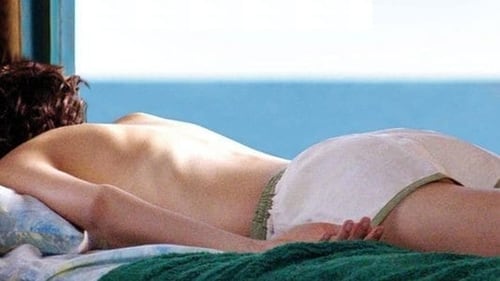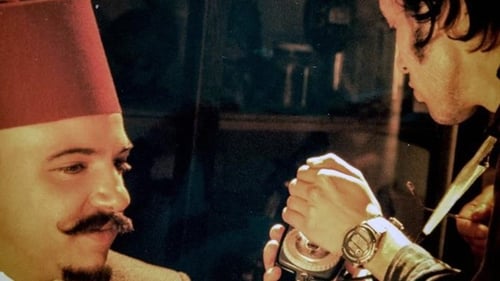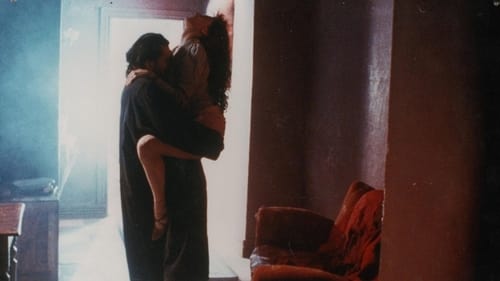
Jean Pierre Reguerraz
出生 : 1939-01-01, Buenos Aires, Argentina
死亡 : 2007-11-02
略歴
From Wikipedia, the free encyclopedia
Jean-Pierre Reguerraz (1939 – November 2, 2007) was an Argentine stage and film actor noted for his deep bass voice. Born in Buenos Aires, Argentina, in 1939 of French parents, he studied acting in Europe before returning to Argentina in 1960 for various stage roles. He performed at the Teatro Payro in Marathon, Rayuela, and Ivanov.
He appeared in 35 films, mostly in supporting roles, including the critically acclaimed El Armario in 2001. In the 2006 Oscar-entry film Family Law, which was distributed in the United States, he played "Uncle Eduardo", a shady attorney. Movie critic Ty Burr of The Boston Globe said Family Law "gets a lift" from Reguerraz' portrayal. Other films include El Amor y la ciudad (2006) and Garage Olimpo (1999), as "Juan Carlos". His last film appearance was in Luisa, filmed in mid-2007.
Reguerraz died at age 68 on November 2, 2007, after what was described as a "long illness".

Franco kills a tango singer, and the weight of his guilt pushes him to search for information about his victim. His quest leads him into an unknown and fascinating world, a true and deep place where the tango is still alive, habitat of the last real and authentic bohemian artists in Buenos Aires.

Esteban
Alex, an intersexed 15-year-old, is living as a girl, but she and her family begin to wonder whether she's emotionally a boy when another teenager's sexual advances bring the issue to a head. As Alex faces a final decision regarding her gender, she meets both hostility and compassion.

Man in Drugstore
A young man becomes obsessed with a gardening student who is about to leave for Switzerland.

Otto Dietrich
Borges falls in love with Beatriz Viterbo, a high-class young woman, who decides to marry a government official who makes Borges strongly suspect him, speculating that he is a sadist who is slowly poisoning Beatriz. To save Beatriz Borges, he decides to turn to a detective, who becomes the hinge of an unthinkable story.

A retiree who is thrown out of the lodging where he lives with a closet, his only belonging, meets a girl from the street and will keep each other company

David's father
An actor returns to Moisés Ville, the first Jewish colony installed in Argentina

Castembacher
Marcos (Gustavo Garzon), an existentially bored university lecturer, gets a grant to return to his birthplace to carry out biochemical research. There he meets old buddy Raul (Leo Masliah), who is now a priest. The story opens out to bring in their schooldays 20 years earlier, during Argentina’s politically active ’70s, when Raul was going out with Tamara (Victoria de Elizalde), who now lives in Paris with husband Paul (Ginger Poujoulet). The mature Tamara (Laura Melillo) returns to be with her sick mother, and Marcos unwittingly stumbles across some high-level politico-economic corruption on the part of the lab’s owners, led by Dr. Castembacher (Jean Pierre Reguerraz). In a piece in which perfs win out over plot, Garzon is satisfyingly nuanced as the disillusioned Marcos. Technically, pic’s restricted budget makes itself felt.

Gedalio Álvarez

A 16-year-old young man, is fond of weapons and the manufacture of explosives. He participates in robberies and is persecuted by the Police, so his group of friends dissolves and he goes to live in another neighborhood and starts working in a bookstore. Dissatisfied, without expectations and full of resentment, Silvio tries to set the place on fire and flees through the city

Laszio Ungari
Set in 1960, the story follows the efforts of the Mossad, the Israeli Secret Service, to find former SS Colonel Adolf Eichmann, who ran from Germany to Argentina and took the name Ricardo Clement. He was wanted for the murders of both Europeans and Jews during the Holocaust. Learning of Eichmann's living in Argentina, the Mossad sends a team to capture him, led by agent Peter Malkin. The standing order: bring Eichmann back alive to Israel for trial.

Two guys as different as a watchmaker and a television editor have to free Carlos Gardel's soul from a strange pact with the devil, who has it trapped. To break the spell, these fans of El Morocho del Abasto, and improvised exorcists, need to find a mythical figure of such popular force as Gardel: the great Diego Maradona.

Deckes
Deep within Buenos Aires's labyrinthine subway system, a train mysteriously disappears along with its 30 passengers. The subway officials are greatly troubled and call in topographer Daniel Pratt to help them find it. Unfortunately, the tunnels are so vast and complex, that Pratt needs his mentor Hugo Mistein to help him. Unfortunately, he too has vanished.

Gustavo
Oliveiro is a young poet living in Buenos Aires where sometimes he has to sell his ideas to an advertising agency to make a living or exchange his poems for a steak. In Montevideo, he meets a prostitute, Ana, with whom he falls in love. Back in Buenos Aires, he accepts a contract with a publicity agency to get the money for three days of love with her. Will he get what he's searching for when his ideal of love's pleasure is literally going in levitation while making love?

A viceroy and an archbishop take their posts in Mexico. A local nun, Sor Juana Inés de la Cruz (1651-1695), intrigues them. The viceroy and his wife find her brilliant and fascinating. The prelate finds her a symbol of European laxity. He engineers the election of a new abbess, severe and ascetic. The virreina visits Sor Juana often and inspires her to write passionate poetry that the archbishop finds scandalous. The viceroy protects her. After he is replaced and returns to Spain with his wife, Sor Juana faces envy and retribution. A bishop betrays her, her confessor humbles her. Plague, a tribunal, and her confession as "the worst of all" end the great poet's life.

A new patient mysteriously appears in a psychiatric ward. He claims to come from another planet to study humans and their behavior. The alien is gentle but criticizes humans for their harsh treatment of each other. The assigned psychiatrist is himself unhappy, and affected by the patient's insight. But he is ordered to treat the patient according to institutional procedure.

The dialogue of a woman with herself split into two unknown opposites.








